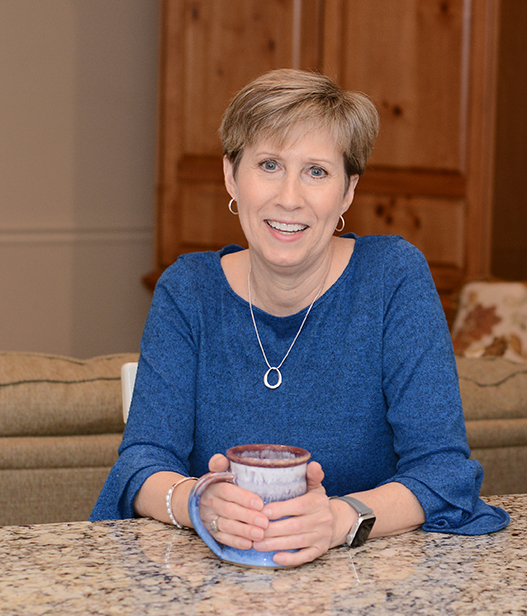Guest post by Jim Davis
Jim and I became friends several years ago at the Blue Ridge Christian Writer’s Conference. I love his writing and insight into tough issues. He will be writing guest posts for me while I’m in India for ten days. Jim gives us a glimpse into some of the questions he addresses in his new book coming out in January, 2014, titled Why Me? And Why That’s the Wrong Question.
 I’ve been to fewer funerals than many, but enough to know that a lot of bad theology gets thrown around as people say their goodbyes. It’s true with other kinds of loss, too. Whenever a person parts with a family member, a relationship, a job, a home, a stage of life, a pet, a dream, or anything else of value, watch out: Someone, likely a very well meaning person, will make that person feel like he or she should not be sad at all, because it’s all God’s plan. If you trust him, you will recognize it is all for the best.
I’ve been to fewer funerals than many, but enough to know that a lot of bad theology gets thrown around as people say their goodbyes. It’s true with other kinds of loss, too. Whenever a person parts with a family member, a relationship, a job, a home, a stage of life, a pet, a dream, or anything else of value, watch out: Someone, likely a very well meaning person, will make that person feel like he or she should not be sad at all, because it’s all God’s plan. If you trust him, you will recognize it is all for the best.
There is a kernel of truth in what they say. As followers of Jesus Christ, we believe that God is faithful to work all things for good for those who love him. (Rom 8:28). We believe that loved ones in Christ who pass away are with their Savior, infinitely better than when we enjoyed their company.
But – and this is important – the loss still hurts. Our faith does not require us to ignore our pain, and pain is not a sign of lack of faith. Christians can and should grieve when they suffer loss, and I offer three reasons why.
First of all, grief is healthy. Mental health experts acknowledge the importance of allowing yourself to grieve, that you might cope with the loss and come to accept it.
Second, Jesus grieved. He grieved when he learned that his cousin John the Baptist had been shortened by a head. (Matt. 14:10-14). He wept when his friend Lazarus died. (John 11:35). And he grieved for his stubborn people, too proud to enter into his love. (Matt. 23:37). If Jesus was saddened by circumstances, even with his perfect faith in the Father’s plans, we can know that it is okay for us to experience the same emotions.
Third, the Bible never says we should not grieve. When Paul wrote to the Christians in Thessalonica, he told them our response to suffering – in that case, the death of a loved one – should not be the same as people who do not know God: “Brothers and sisters, we do not want you to be uninformed about those who sleep in death, so that you do not grieve like the rest of mankind, who have no hope.” (1 Thess. 4:13). He then taught them that those in Christ will rise again in the last day and live with God forever.
Note that Paul does not say a Christian should not grieve, period. Of course we grieve. Paul says instead that we should not grieve in the same manner as someone who has no hope.
There is a difference between sadness and hopelessness, and grief is not the same as giving up. In our grief and sadness, we can remember that death is not final. We can remember that because Jesus died, we live, and because he rose again, we live with him. We don’t have to act like we have no hope, because we do have hope.
Because we have hope, we don’t give up on life when we’re hurting. We keep up our time with God and talk to him about our frustrations, and even our anger, but we do talk to him. And when we tell him how we feel, we can also tell him that we love him even though we do not understand why the loss has happened. We show that we believe in the Gospel even when we feel like dying.
Don’t be mad if someone suggests that you shouldn’t grieve, because they probably want to help and just don’t know what to say. But they are wrong. All people should grieve a loss, including Christians. We can mourn when that dream has to be set aside, even if we believe that God has other wonderful things in store. We can be sad for the separation of our loved ones, even as we rejoice for their reunion with Christ. We can shed tears for missing moments, even as we look forward to an eternity of new moments when our time comes to join them. We grieve, and yet we trust.
Our sadness is not a slap in God’s face, not at all. He grieves with us. But we grieve with hope.
 Jim Davis lives in Birmingham, Alabama. He’s a Sunday School teacher, husband, dad, and constitutional attorney who writes and teaches Bible studies. You can find more about Jim and his new book, Why Me? And Why That’s the Wrong Question at www.jimdavisbooks.com.
Jim Davis lives in Birmingham, Alabama. He’s a Sunday School teacher, husband, dad, and constitutional attorney who writes and teaches Bible studies. You can find more about Jim and his new book, Why Me? And Why That’s the Wrong Question at www.jimdavisbooks.com.




Beautifully written truth here! Thank you for this!
Shelly, thanks! I agree with you – Jim did a great job in answering this question. Thanks, Jim!
Thanks Shelly. I love Crickett’s blog, and I’m so honored to get to appear on it. I look forward to seeing what Crickett shares after she returns from India.